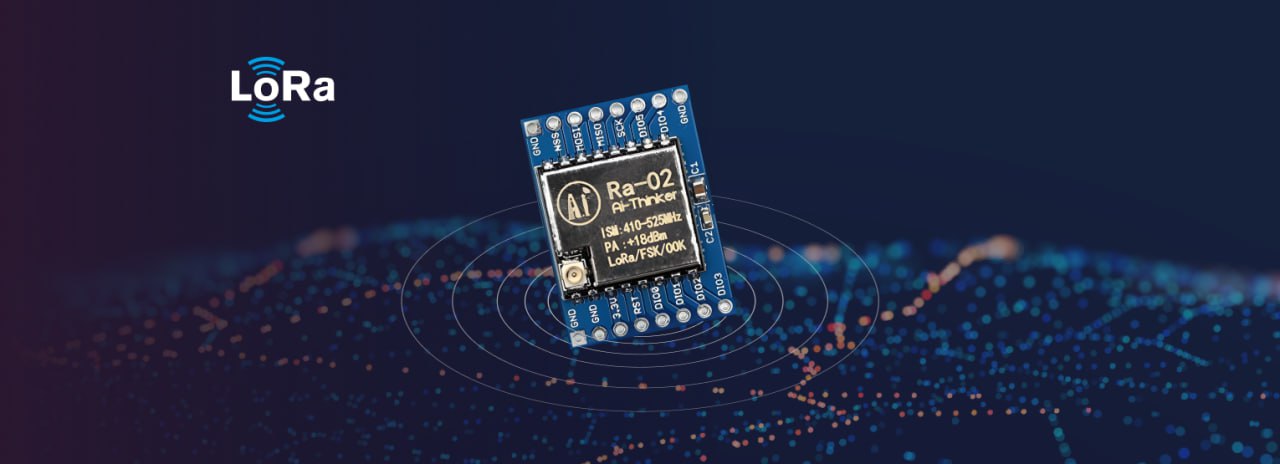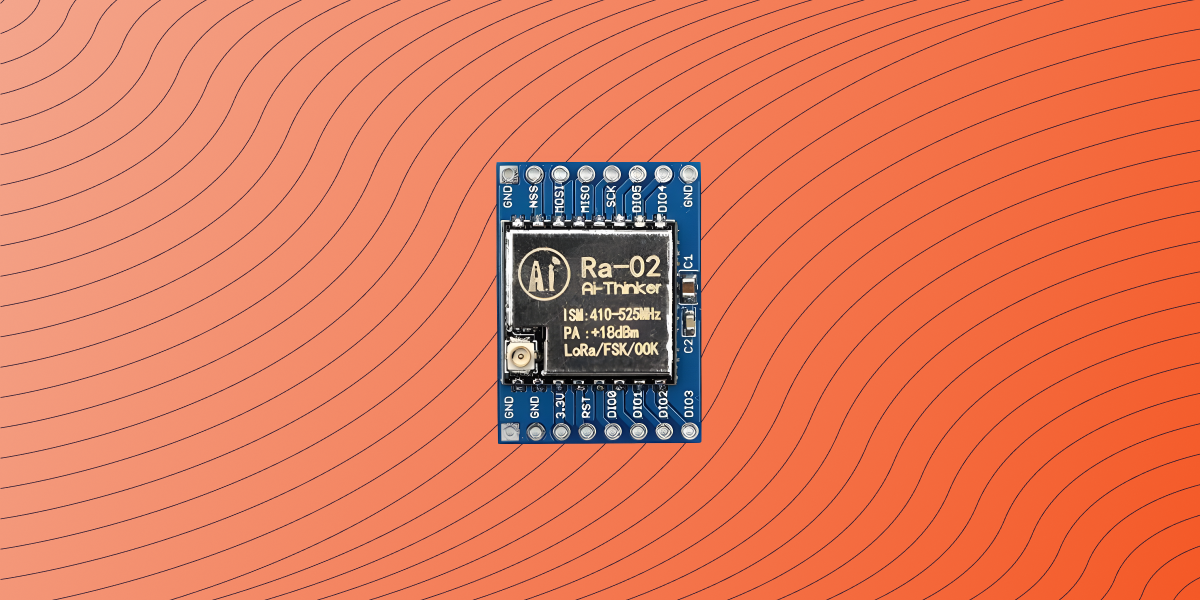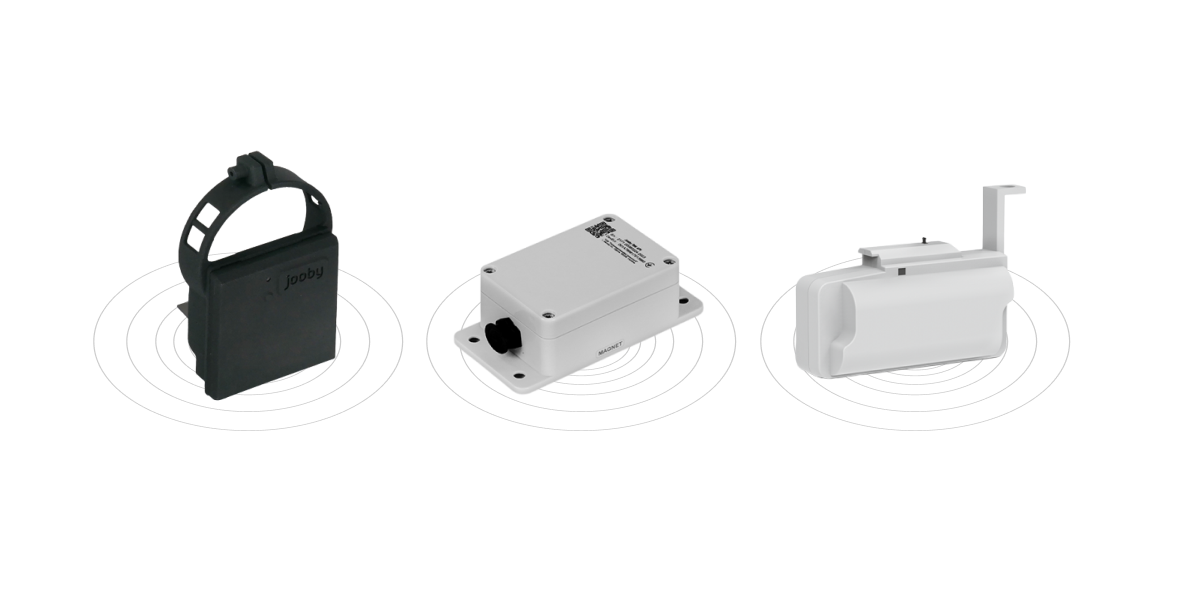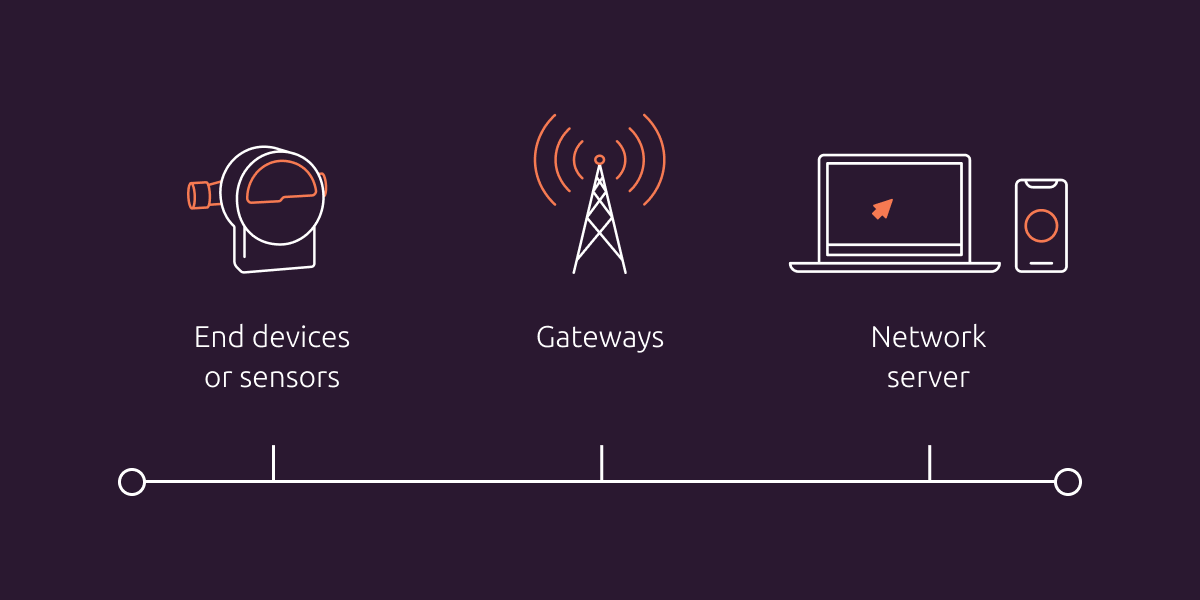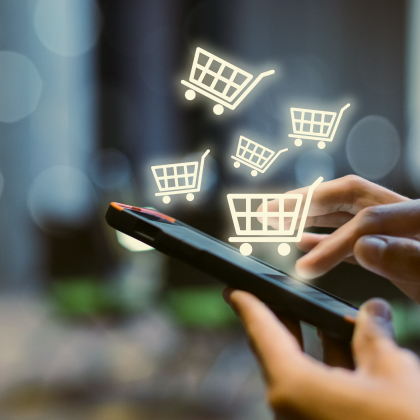Smart technologies are becoming increasingly in demand in large cities, allow for the optimization and automation of many processes at relatively small expense. One of the most popular devices used for this purpose is the LoRa module — a device that transmits data in low-power networks. In this article, we will discuss LoRa wireless data transmission technology, the role of LoRa modules in it, and the prospects that these technologies offer for the Internet of Things (IoT).
Essential features of LoRa technology
LoRa (Long Range) is a wireless communication technology based on radio signal modulation. It is a hardware layer solution that allows you to connect to LoRaWAN and transmit small data packages from sensors and smart devices through the gateway system to the operator’s server.
Let’s take a look at the main LoRa network characteristics:
- Geolocation capabilities of LoRa devices allow them to track the location of other devices.
- The technology works in unlicensed frequency range
- Due to the low power consumption in LoRa technology, end devices can operate for years without battery replacement
- Long-range connectivity of LoRa reduces the cost of network deployment
- Deep indoor penetration ensures signal transmission in dense urban environments from basement rooms
- Secure data transmission with LoRa ensures encryption of information with one of the strongest modern encryption protocols — AES-128.
- Scalability data transmission: the technology allows the adding of as many new access points and modules as needed
- Flexible configuration of communication parameters: more than 6000 settings are available to the operator.
LoRa key features allow it to use the technology in the Internet of Things (IoT): Long-range connectivity enables the transmission of device sensor data with a relatively small number of gateways.
What the LoRa module is
LoRa modules are small devices designed to transmit data on the LoRaWAN wireless network on frequencies in the 864-915 MHz range, depending on the region. The modules work based on Semtech chips. These devices have the following main characteristics:
- low power consumption
- high receiver sensitivity
- high protection degree against interference
- data transmission at a distance of up to 15 km
- autonomous power supply (from battery)
- service life — up to 10 years without battery replacement
Below we have outlined the advantages and disadvantages of LoRa modules.
| + | – | |
|
Bidirectional option: the module is designed to both send and receive a signal. Affordable price: the device operates in an unlicensed frequency range, which reduces the cost of operation. Long signal transmission range: depending on the terrain conditions, the module can transmit data up to 5 km in the city and 15 km in open terrain. Minimal power consumption: the device does not require a lot of power to operate in autonomous mode, it can work for up to 10 years. Universality: LoRa technology can be used anywhere in the world. High receiver sensitivity: modules will receive the signal even in basements and densely built-up locations. |
Low throughput: the global LoRa network is limited in size. In addition, it is only suitable for short and periodic messages. Comparatively low data rate: because of this characteristic, the technology is not suitable for applications where it is important to receive data in real time. Manufacturing monopoly: LoRa chips can only be produced by Semtech.
|
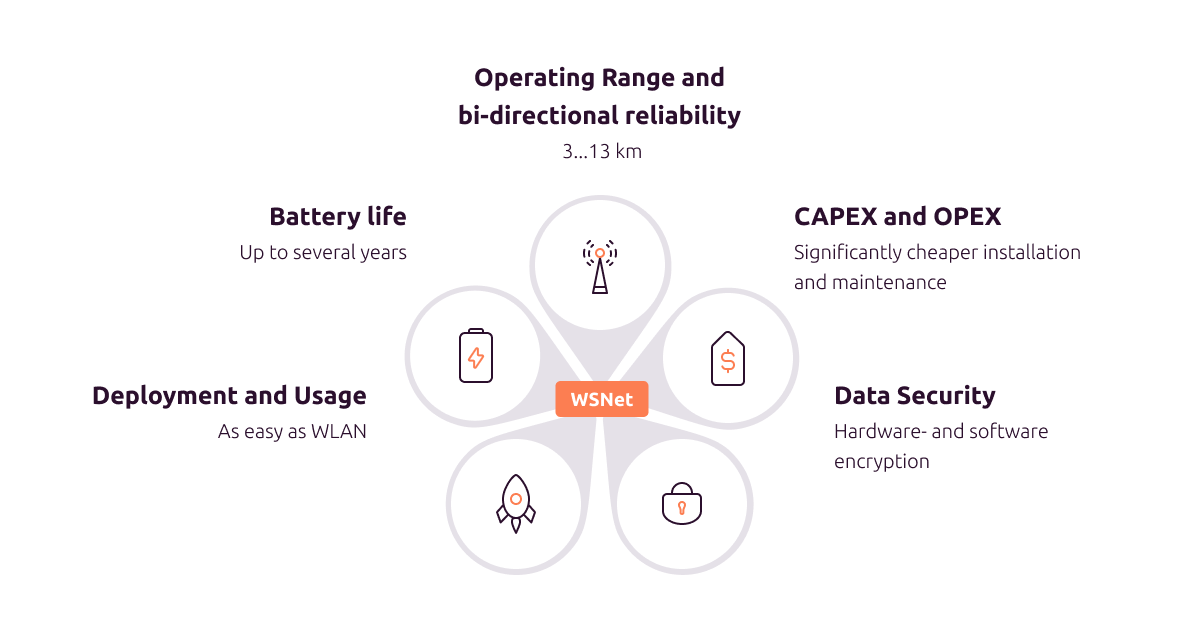
Jooby devices for remote resource accounting
Based on LoRa modules, Jooby, the European manufacturer of smart equipment, has developed devices for smart resource accounting — smart radio modules and sensors for resource meters.
Jooby devices can be installed on gas, water, electricity and heat meters, record their readings with a set frequency, and transmit through the wireless network LoRaWAN to the base station. The data is then transmitted to the server, where the resource provider has access to it in their software.
The solution allows a convenient interval to be set for the supplier to take readings and automatically transmit them to their administration panel. In addition, Jooby devices notify the operator in case of emergency situations, such as tampering with the device, magnetic impact, low battery, or reverse water flow.
How data is transmitted
Data collection and transmission applying to the LoRa module involves four elements:
End devices — points where sensors with embedded LoRa modules are placed. Such devices operate autonomously on batteries. Sensors capture data and then transmit it to the gateway.
The gateway is a device that connects end devices and the network server bilaterally. The gateway communicates with the modules using the LoRaWAN protocol and through the Internet with the network server. The main task of this element of the system is to collect data from all available modules and transmit it to the server.
The network server is the next level of data collection and processing, interacting with all gateways of the LoRaWAN system. The network server records all the collected data and manages the network — it sets the optimal schedule, adapts the data transmission speed, and manages the storage and processing of the received data.
The application server is the endpoint of data collection. The application server also controls the operation of the end devices.
Areas LoRa modules are used
The characteristics of the LoRa module allow it to be used for a wide variety of tasks related to high technology. Low power consumption, long signal transmission range, and resistance to interference make the module the ideal solution for:
- remote resource accounting
- agriculture
- smart city
- vehicle tracking
- smart parking lots
- building systems management
- environmental research
LoRa technology for deep indoor penetration is the optimal solution for low-power systems that do not require high data rates. The scalability of LoRa networks also allows for easy and relatively cost-effective network deployment. In addition, due to the network flexibility LoRa data transmission, parameters can be customized to meet the exact requirements of your project.
LoRa modules are an important part of a cost-effective solution. These devices enable secure data transmission over long distances and are suitable to be used in different areas — from remote resource accounting to environmental monitoring.
